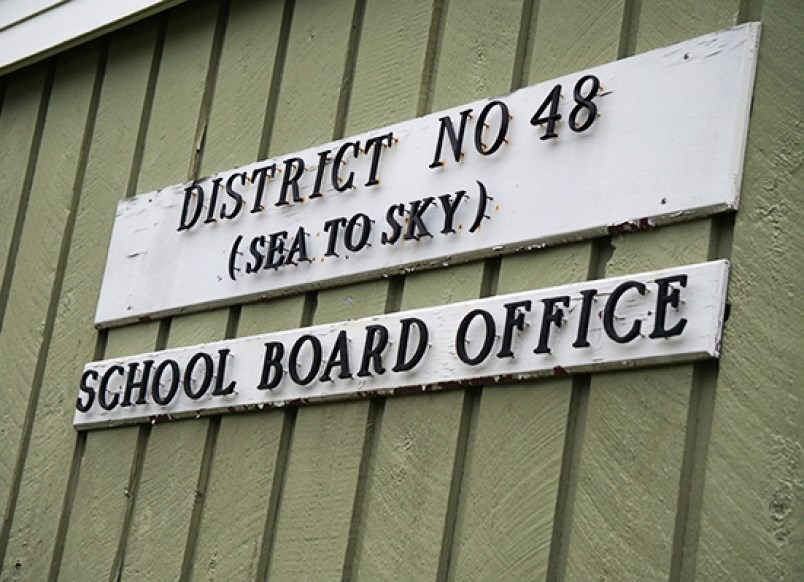The Sea to Sky School District has tough fiscal decisions ahead.
Staff and the board are now working on the preliminary budget for the 2016-2017 school year. At present, despite being one of the few growing districts in the province, they are anticipating a shortfall of approximately $633,000 on a budget of approximately $50 million. School districts are not permitted to have deficits in preliminary budgets submitted by June 30.
In response, the board brought forward a motion at its latest meeting to write a letter to the provincial government to express its concerns over funding levels.
“We will struggle this year to provide the services we’ve been used to providing,” board Chair Rick Price told The Squamish Chief.
While provincial funding has increased, the board, like others across the province, is facing more costs from expenses that have been downloaded to it. Examples include a change to a new Internet connectivity network that will take costs up to more than $200,000 from $30,000.
Another expense is a nine-per-cent increase from BC Hydro in April 2014 that has been passed onto school districts.
“These increased costs exceed the increase provided by the ministry,” Price said.
As this budget is in draft form, the chair said staff is looking at areas that can be cut to bring the budget in balance over the coming weeks.
The current version of the budget shows some reductions in education technology, professional development and educational support programs and initiatives even with the deficit and the district will have to cut further.
The draft budget also shows some increases.
“The problem across the entire province is the wages and benefits,” Price said. “It certainly is a dilemma.”
Most notably, the document includes pay increases for senior administration, with hikes in the range of approximately $18,000 to more than $40,000 extra per year. Senior staff are currently paid $117,000 to $144,000 per year, with superintendents at the high end of the scale. With the pay increases, they would be paid $135,000 to $186,000.
Price suggests the issue is one of timing, as the wages and benefits for senior staff have been held in check in recent years because of a mandate from the province.
Part of the dilemma, the board chair says, is that increases in one area such as teaching staff can bring on demands for increases from school administrators and eventually from district administration.
At the same time, the district has to compete with others like the health sector or local government, as well as the private sector, in terms of recruiting senior staff.
“Recruitment and retention gets to be a real issue,” he said. “We have lost senior people to other jurisdictions.”
He says the school district can consider items such as salaries in budget discussions.
Steve Lloyd, president of the Sea to Sky Teachers’ Association, questions where money from past surpluses has gone, especially in light of the growth of administration costs in recent years.
He is also skeptical about the competition argument when it comes to the administration raises, saying if districts, and ultimately the provincial government, want to remain competitive, they should put more money into classrooms.
“If they really want to be competitive, what do private schools advertise? Smaller class sizes, more attention from teachers. Let’s be competitive on things that matter, on things that make people choose private education instead of public education,” he said.



